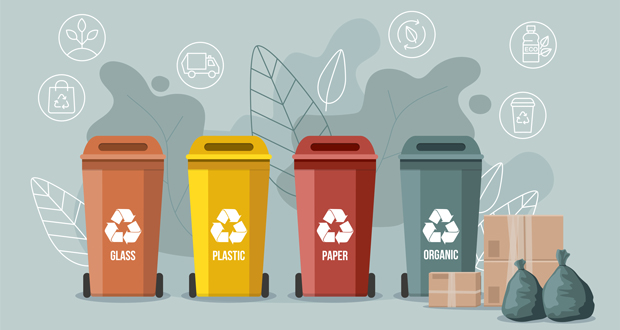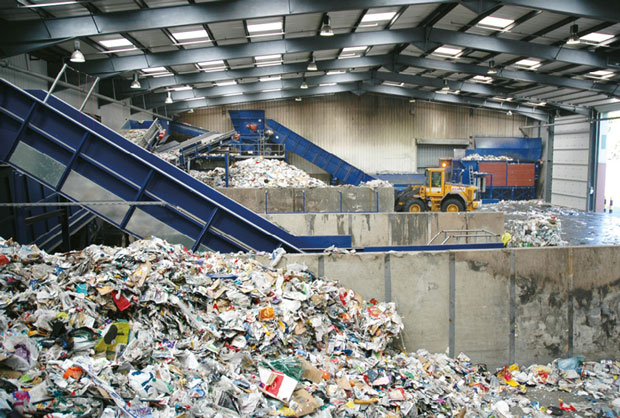CONDUCTING WASTE AUDITS AND LEVERAGING DATA
For factories handling multiple waste streams, waste audits are an essential way to implement effective waste reduction strategies. Taking a holistic approach is key. Instead of focusing on individual items like packaging or hazardous waste, facility managers should look at the entire waste output to develop smarter segregation and recycling strategies.
This is where comprehensive waste audits become invaluable. Audits provide data-driven insights that go beyond surface level observations, allowing businesses to identify the volume, type, and source of each waste stream within their operations.
By leveraging advanced reporting and analytics tools, facility managers can gain real-time visibility of their waste streams. This data empowers them to make informed decisions, adjust operations proactively and track progress toward sustainability goals. This in turn leads to smarter, more targeted segregation and recycling strategies.
HANDLING HAZARDOUS WASTE
Traditional methods of managing hazardous waste such as landfill and incineration are unsustainable, leading to environmental pollution and contributing to climate change.
Because factories often deal with hazardous materials, oils, chemicals, or batteries that require careful segregation and handling, designated areas for hazardous waste, clear labeling and specialist training are important ways to prevent cross-contamination and ensure regulatory compliance.
Without accurate data, it’s nearly impossible to manage these hazardous materials safely, cost-effectively, and in compliance with regulations. A comprehensive waste audit, underpinned by detailed data collection and analysis will help facility managers gain a clear picture of their hazardous waste streams.
It is important to thoroughly understand the type and quantity of hazardous waste generated. A thorough waste audit helps identify areas where waste can be reduced, reused, or handled more effectively and help FMs implement safer, more efficient handling and storage processes. A data-driven approach not only minimises the risk of environmental contamination and regulatory breaches but also improves worker safety and reduces disposal costs.
Robust segregation of hazardous waste is essential to avoid cross-contamination and enable effective recycling or treatment. By understanding different types of hazardous waste and separating the different types, such as chemicals or batteries, each stream can be handled and disposed of according to its specific requirements.
EDUCATING TEAMS
Education and team engagement in managing waste streams is key, but a major challenge in effective waste management is ensuring that employees fully understand and engage with recycling efforts.
Facility managers must ask themselves: “Are employees actively participating in recycling?” “Do they understand the importance and requirements of the waste management system in place?”
To maximise recycling success there is a need for better education that challenge people’s mindsets towards waste management. To create real change, we must educate teams on why waste segregation matters and how their actions directly impact the environment and their organisation’s sustainability goals.
This is why when choosing a waste management partner, businesses should enquire about the educational tools they can make available to support employees. Workshops, visual guides, and interactive training sessions can help staff grasp best practices. Implementing incentive programmes such as sustainability challenges or department-based rewards that encourage participation and boost motivation is another important step towards meeting sustainability goals.






